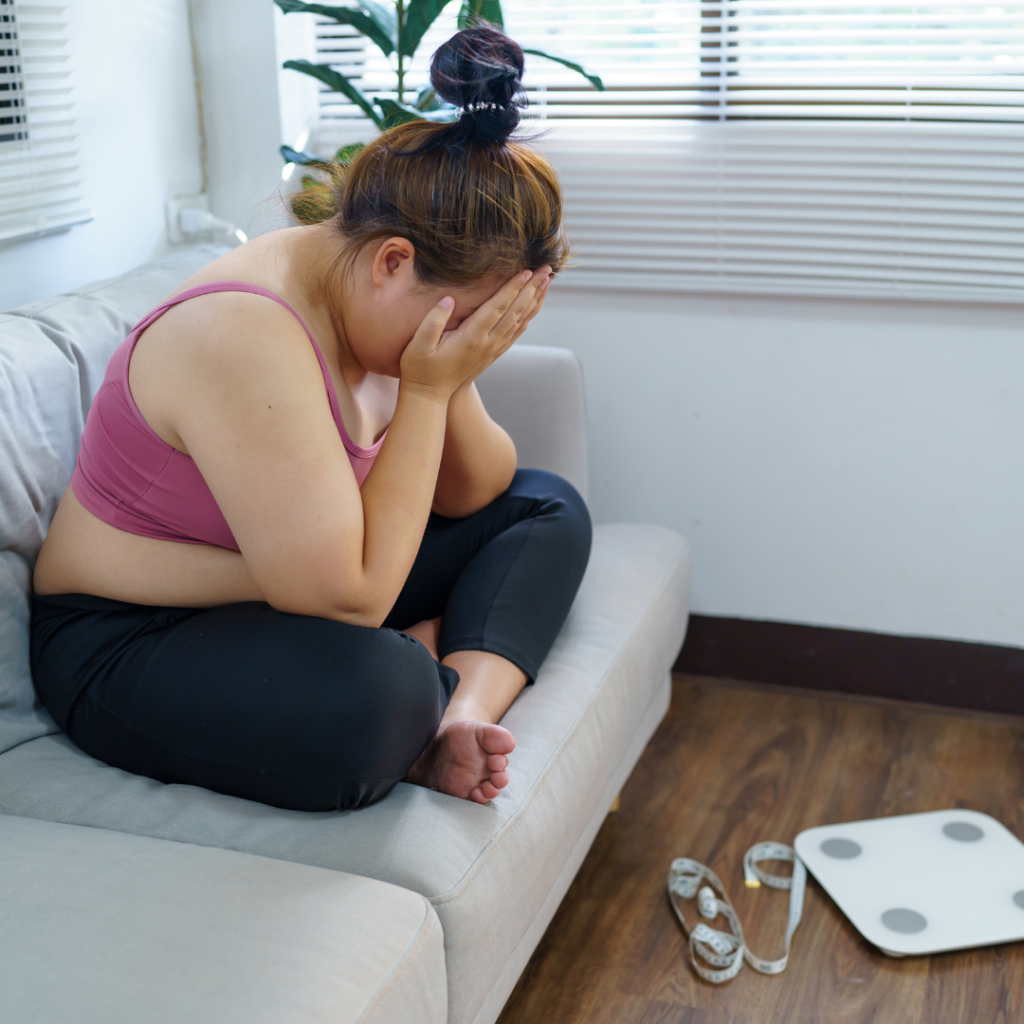
If you’re using semaglutide for weight loss and not seeing the results you’d hoped for, you’re not alone! While this medication has had a profound impact on many people, various factors can impact your weight loss. If you’ve been asking yourself, “Why am I not losing weight on semaglutide,” keep reading to identify potential issues, adjust your approach, and finally see the semaglutide results you’ve been dreaming of.
Why Am I Not Losing Weight on Semaglutide?
Semaglutide, which is typically used to help with Type 2 diabetes, has also shown a significant correlation to weight loss. This GLP-1 receptor agonist works by mimicking a hormone that regulates appetite, which helps reduce hunger and calorie intake. Because many patients experience success, you may be asking yourself, “Why am I not losing weight on semaglutide?” In this article, we’ll discuss several factors that can impact your semaglutide weight loss, including dosage, lifestyle, and metabolism.
Common Reasons You’re Not Experiencing Weight Loss on Semaglutide
If you’re not seeing the semaglutide before and after you desired at the start of your journey, that doesn’t mean it’s impossible! Often, we see many patients make a small shift in their semaglutide regimen, whether it’s a shift to their lifestyle choices or the actual dosage and achieve the semaglutide results they’ve been craving. Therefore, it’s completely possible for you! Here are a few common reasons you may not be seeing the results you desire:
Improper Dosage
The effectiveness of semaglutide for weight loss in non-diabetics depends largely on getting the right dosage. If you’re not on the appropriate semaglutide weight loss dosage chart, you may not achieve your desired weight loss goal. Therefore, we highly recommend you consult with your healthcare provider to ensure you’re on the correct dose for weight management.
Diet and Lifestyle Factors
Weight loss on semaglutide requires a balanced diet and regular physical activity to maximize results. Your physical activity should include a mix of aerobic exercise, strength training, and flexibility exercise to allow your body to feel its best.
When it comes to nourishment, if you’re not losing weight on semaglutide, here are a few things you should be prioritizing in your semaglutide diet plan:
- Ample Hydration
- Whole Foods
- Non-Starchy Vegetables
- Fruits
- Lean Proteins (TOP Priority)
- Complex Carbohydrates
- Healthy Fat Sources
Further, a few things to steer clear of include:
- Sugary Foods
- Highly Processed Foods
- Fried Foods
- Soda and Carbonated Drinks
- Alcohol
Metabolic Variations
Everyone’s metabolism is unique, which means semaglutide results can differ widely. Ideally, most of the weight loss you’ll experience during your semaglutide journey will occur in the first 3-7 months, according to a study conducted by researchers from a prestigious Precision Medicine for Obesity Program. However, metabolic differences could mean you lose weight at a slower rate or require additional time to see progress.
If you’re concerned about your lack of weight loss on your semaglutide journey after a long period, talk to a weight loss doctor to see if this pattern is due to a slow metabolism or if there are any adjustments that could be made to kickstart your transformation.
How to Address Obstacles to Weight Loss on Semaglutide
If you’re not losing weight on semaglutide, here are a few places to start to help get you back on track towards the weight loss you’re working so hard for:
-
Ensure Proper Injection Techniques Are Being Used
Proper injection technique is critical when using semaglutide! If you’re unsure about how to inject semaglutide correctly, seek guidance from a medical professional to make sure you’re administering the medication properly.
-
Refine Your Diet and Exercise Routine
Your semaglutide diet plan and physical activity levels are the cornerstone of your weight loss journey, regardless if you’re taking semaglutide or not. While semaglutide helps to reduce hunger levels, what you put into your body and the energy you exert is ultimately the cause of your weight loss. Therefore, we recommend you review your diet plan and activity level to ensure you’re pairing your semaglutide treatment with healthy lifestyle choices.
-
Track Progress and Side Effects
The best way to know what adjustments need to be made is by collecting data on your experience! Therefore, we recommend recording your progress, identifying trends, and adjusting your strategy as needed. We also recommend you monitor side effects so you’re aware of what impact they can have on your progress in real-time.
-
Review Your Dosage with a Professional
If you’ve tried all the other tips on this list and are not seeing results, it may be due to your semaglutide dosage being too low, which leads to a lack of effectiveness. Therefore, semaglutide regimen adjustments should be discussed with a healthcare provider, who may consult the semaglutide dosage chart and consider your current experience to find the right fit for you.
Tried Everything? It May Be Time to Seek Additional Help
If, after making adjustments, you’re still not achieving your dream results, it may be time to consult with a weight management expert, such as Dr. Brook Seeley! Dr. Seeley and his team at CT Facial Plastic Surgery can provide guidance on overcoming challenges and refining your approach for better outcomes.
Whether it’s dosage adjustments, diet modifications, or targeted support, understanding why you may not be losing weight on semaglutide can help you get back on track toward reaching your goals. Book a consultation with Dr. Seeley today to gain the clarity you need to succeed on your weight loss journey!
